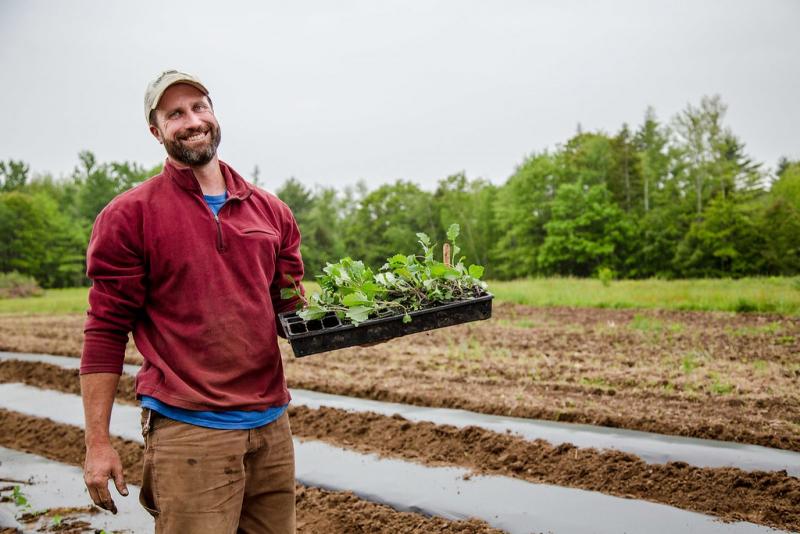Rep. Pluecker introduces bill to end hunger by 2030
AUGUSTA — Representative Bill Pluecker, I-Warren, this week introduced LD 174 “An Act To Implement the Recommendations of the Ending Hunger by 2030 Advisory Group” which seeks to end hunger in the state within the decade.
LD 174 is the result of a bill from the 129th Legislature which brought together over 200 stakeholders from many backgrounds to end poverty and food insecurity in Maine by 2030, according to a news release.
Department of Economic Protection Commissioner Amanda Beal said of the plan that, “in three phases of work (interrupted by a global pandemic), upwards of 200 Maine people brought clear eyes and open minds to wrestle with the rampant and corrosive presence of hunger in our state. These people included legislators, nonprofit and business leaders, educators, policy experts, and concerned Maine residents. Importantly, it included Mainers with lived and living experience of hunger who bravely shared intimate portraits of hunger as it’s faced each day and who shined an invaluable light on the solutions that can end this ongoing yet preventable emergency.”
The report seeks to treat hunger as a social problem which is a symptom of poverty, and thus as one that can be treated by addressing the underlying cause- poverty.
First, LD 174 would “build the capacity and infrastructure necessary within and outside state government to coordinate implementation of the Plan to end Hunger in Maine,” by funding, staffing, and coordinating with the Governor’s Office of Policy Innovation and Future, carefully measuring progress towards goals, and scaling up to a statewide level initiatives that show promise in specific localities.
Next, the hunger-eradication plan calls for “maximizing Federal Nutrition Programs & Child Nutrition Programs and Policies” by developing initiatives that increase participation in the programs by building awareness and cultural relevance amongst communities and groups most likely to access those programs.
The plan also advocates for nutrition program eligibility requirements which would encompass all Maine residents who are food insecure, changes to MaineCare which would increase federal funding from school meals the state is already providing, and expanded access to summer and after-school meal programs.
The final leg of the plan is to increase the availability of local foods grown and caught in Maine by investing in farmland and working waterfront infrastructure and protection, maximizing use of Maine-made programs in federal and state programs, investing in farming and fishery-related business to increase jobs and output, and finally expanding food rescue and gleaning programs to ensure that as little of the food grown right here in Maine goes to waste as possible.
“I was so pleased to receive support from across the state for this bill. The clear conclusion of the report is that we have the resources to deal with food insecurity and hunger in the state, we now need to marshall those resources, point them in the right direction and solve this problem,” Rep. Pluecker said. “Food insecurity and hunger are costing this state a billion dollars annually in lost productivity and band aid measures that treat the symptoms, not the cause. With this bill we can save tax dollars for hard-working Mainers and make sure no one in the state is going to sleep not knowing where their next meal is coming from.”
The Committee on Agriculture, Conservation, and Forestry expects a vote on this measure during the first few weeks of the new year, with passage allowing the plan to eventually move towards the Governor’s desk for a signature to become law.

























